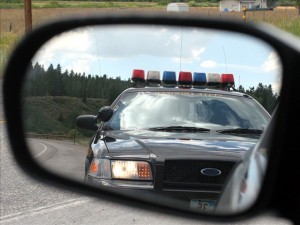
The court decision says it is okay for police to conduct traffic stops even if the reason the officer is pulling someone over is based on the officer’s ignorance of the law.
The court ruling came on an 8-1 vote, with Justice Sonia Sotomayor the lone dissenter. Sotomayor said the court ruling would result in “further eroding the Fourth Amendment’s protection of civil liberties in a context where that protection has already been worn
down.”
The details of the case involve an Hispanic driver who was pulled over on Interstate 77 in North Carolina in 2009 by a county sheriff’s deputy who at first thought the driver looked “very stiff and nervous,” so he followed the car. The deputy said he then pulled over the driver because one of the car’s brake lights was out. After getting permission to search the car from the owner, Nicholas Brady Heien, who was lying in the back seat, the deputy found a baggie of cocaine. Heien was charged with drug trafficking.
However, it turned out North Carolina law did not require cars to have two brake lights, only one, which the deputy claims he didn’t know. Heien’s lawyer—backed by civil liberties groups—tried to get the search thrown out, but after the trial court denied the motion to suppress the evidence, the North Carolina appeals court reversed the decision and threw out the search. Then the North Carolina Supreme Court reversed the appeals court and re-admitted the evidence, ultimately bringing the case to the U.S. Supreme Court.
The Supreme Court said the arrest and the search were valid—even if the officer was wrong about the law. Even though the Fourth Amendment bars “unreasonable” searches and seizures, “to be reasonable is not to be perfect, and so the Fourth Amendment allows for some mistakes on the part of government officials,” Chief Justice John Roberts said in his opinion.
But Sotomayor warned the court that “in addition to these human consequences—including those for communities and for their relationships with the police—permitting mistakes of law to justify seizures has the perverse effect of preventing or delaying the clarification of the law.”
“This result is bad for citizens, who need to know their rights and responsibilities, and it is bad for police, who would benefit from clearer direction,” she wrote.
Robbin Shipp, an Atlanta-based attorney who wrote the book “Justice While Black: Helping African-American Families Navigate and Survive the Criminal Justice System,” said it was a “horrible” decision that sets a bad precedent.
“It gives police officers this margin of error when making factual assessments on the fly,” said Shipp, who previously served in the Georgia state legislature. “All laws are subject to a slippery slope or a cost benefit analysis and I can only imagine that this is going to have a horrible impact in its application. Because now it gives more latitude to police who are already overextending their reach into individuals’ fourth amendment rights. We always see these abuses, such as stop-and-frisk in New York, which was struck down by a federal judge. The list goes on and on. Now they can say, ‘I thought they broke the law so that’s why I engaged in a stop.’ I think this is a dangerous thing.”


